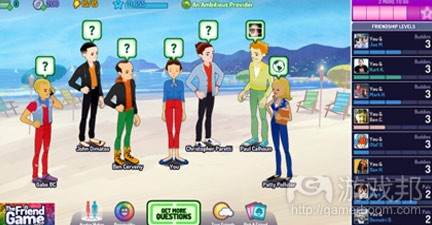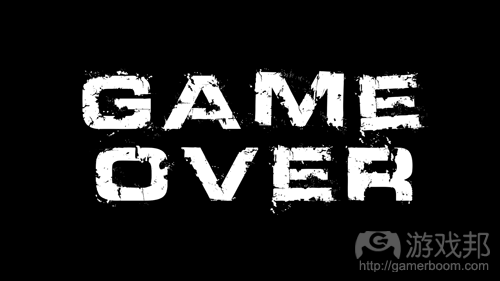社交游戏繁华落尽后该何去何从?(下)
作者:Leigh Alexander
“无情者最有市场”
Koster表示我们不应该将所有的指责或赞誉都加诸于Zynga。“这是一个开放的新市场,几乎没有什么控制。这是一个不受规范的淘金热,在那种形势下会发生的情况就是,最擅长运用策略的精明者可以使用在更成熟的市场不可行的方法建立庞大基础,而这些方法通常并无道德可言。”
他补充道,“最终,Facebook还是出来干预了,但开发者的做法已经极大确立了该市场基调,深刻影响了该平台及其开发者”。即使是Koster加入Playdom时的那些剥削性手段已经被取缔,其商业框架还是不可挽回地发生了变化:参数指示凌驾于设计之上,游戏开发依赖短时间内的分离测试,数据追踪精确到以分为计,而不是更全面地观察用户生命周期。
“在当时的情况下,如果你不采用这些方法,你就会陷入困境。因为市场总是无情的。开始施加限制之后,这一行仍然遗留着根据短期动机结构而优化游戏的开发传统。”
这就产生了极为保守主义的设计习惯:“开发者们不是去探索新平台所鼓励的创新,而是迅速在一小撮可行的游戏类型上扎堆,因为采用这种做法的成功可以预见。在我看来,多产的试验期被人为缩短了,在商业手段而非游戏设计上具有创新性的公司却成了赢家。”
他还认为这种突如其来的淘金热让Facebook大为意外,导致该平台的API并不十分适用于游戏开发,不断变更的政策也令开发者时常额外劳动,其仪表板也不易于管理,社区管理设施更是有限。
像Siegel这种具有冒险和创新精神的设计师所在的小型社交游戏公司几乎难以在这种商业与设计的双重限制下幸存,Cancienne表示“从多个方面来看,该平台明显更偏袒大公司。其平台API本身就是个不断移动的靶子,经常变更或移除功能。如果你是一家小型公司,那就非常难以在此幸存,最化优化地让游戏使用平台服务,甚至根本不可能在此运行。”
“F2P能量机制成了一个通吃的解决方案,我们所认识的每一个人都成了该选项的支持者。”
Cancienne称“在我们被Zynga收购时,我们多数人都只能无奈苦笑,我们抱着一线希望试图在这个不断炮制垃圾的平台上做出一番别样的成绩,这家公司很显然用错了心思,但对我们多数人而言,我们的直觉告诉自己,我们制作出自己能够引以为豪的作品的概率非常之低。”
被收购之后的Area/Code团队所设计的《Friend Game》富有创新,但由于EA游戏《Sims Social》的原因,Zynga并不打算对其长期投入,因此它迅速消失在大众视野中。Zynga在今年初为了节约开支而关闭了Area/Code工作室。
理论上说,Facebook社交游戏仍然具有创新潜力,但该平台最初却并没有做好托管游戏的准备,并迅速倒向参数导向型大公司的需求。随着Zynga的没落,该平台常见报端的MAU、DAU、同时在线用户等庞大的乐观数据也被裁员、高管出走、收益下滑和工作室倒闭等负面消息所取代。
面对《Candy Crush Saga》开发商King在移动崛起,在Facebook榜单取代了Zynga这一局面,Zynga似乎打算进入博彩领域(这一理念被现任Zynga首席执行官Don Mattrick叫停了)。免费手机游戏市场从Facebook平台的灰烬中兴起,但游戏本身却鲜有遗作。
“从完全疯狂的数据降至一般疯狂的状态”
Koster称开发者向移动平台转移令Facebook成了一个不再如此重要的存在,“我投入Facebook游戏开发期间多数时间想创造一种新的社交体验。我认为我并非唯一进行这种尝试的人。但在我看来,多数试验都不可行——不只是我的,其他人的也一样。”
广大用户对更为同步的交互活动似乎并不那么感兴趣,这是许多设计师认为这是能够为Facebook游戏“正名”的重要因素。这种向移动平台转型的趋势令Koster得以重返其他设计兴趣,例如制作谜题。同时他又表示,“我不再开发社交游戏后就再也不想玩Facebook游戏了。”
现在仍有成百上千万玩家在玩Facebook游戏,由于平台功能调整,多数用户选择屏蔽社交游戏通告。
Cancienne表示,“那些数据已经从两年前彻底疯狂的状态降至一般疯狂,我们每天仍然可以看到成百上千万玩家在Facebook玩游戏。变化最明显的是与这些社交游戏有关的表述,以及分享这一行业心得的数量。”
Facebook在最近的第三季度财报中指出,Facebook每月游戏玩家超过2.6亿,2013上半年用户在游戏中投入超过15亿美元。
但Siegel认为这里仍然存在让开发者敬而远之的障碍:“该平台的开发难度和成本都增加了,与此同时其应有的机遇却在缩水,从用户角度来看,我认为人们对Facebook平台的信任可能已降至最低点。”
虽然他曾经相信Facebook平台的一系列机遇和可能性,但其本人却已经没有任何试玩该平台游戏的动力,并认为他试玩的任何Facebook游戏设计都很糟糕,缺乏创新,只会诱使他花钱并向好友发送垃圾信息,并且会在未经允许的情况下经常向他发送邮件。有了这些先入为主的观念,我们就很难想象开发者还会在Facebook游戏上投入时间和精力。
“现在有许多人将Facebook游戏等同于垃圾,我不认为这是一种有失公允或不准确的评估。我为什么这么说呢?当然是因为Zynga。”
Facebook热潮的尾声甚至也映射了“社交”本身的情况——曾一度受到设计师和远比Facebook和Zynga更大型的AAA发行商所追捧的热词,现在已经成了昨日黄花。
“对多数开发者来说,‘社交’意味着终结”
Cancienne称“我曾经听说Facebook打算向独立开发者伸出橄榄枝,但我对此表示怀疑,作为全职独立开发者,我并不擅长向人们推销游戏,所以虽然我不怀疑‘社交’的毒性,但它并不会对我产生多大影响。”
Koster表示“如果社交网络游戏中的‘社交’被污名了,我也不会感到惊讶。人人都认为他们知道这意味着什么。但对我来说,这意味着实际的社交性还有大量的设计空间。我们不应该放弃它。”
在Zynga开始游戏生涯的Siegel认为,他在社交领域中的经历极为令人泄气,这已经影响了他的心理健康。他希望目前的工作是他在游戏行业中最后一份工作,即使他曾经深信不疑的“社交游戏”理念卷土重来了,他也不会再参与其中。
他表示,“‘社交’总是一个转移注意力的东西。对多数开发者来说,‘社交’意味着终结。它是一个广告机会,重新吸引玩家的策略,一个病毒诱饵。Facebook游戏仍在繁荣发展,每天都有成百上千万人在Facebook玩游戏……如果我们在过去5年中能剔除我们所做的那些糟糕的选择,社交平台上的游戏就很有可能因此而复兴。”
“但我不知道这中间的可能性有多大,它究竟何时发生,或者说它到底有没有再次发生于Facebook平台,我只知道自己已经尽力了。”(本文为游戏邦/gamerboom.com编译,拒绝任何不保留版权的转载,如需转载请联系:游戏邦)
With the luster of social games gone, what now?
by Leigh Alexander
“It favored the most ruthless, basically”
Koster says that neither blame nor credit can be laid solely at Zynga’s door. “The fact is that it was a wide open new market, with virtually no controls on it. It was a gold rush scenario with no regulation,” he says. “And what happens in those situations is that those who are the most clever with their tactics can build a massive lead based on practices that don’t work very well in a more mature market, that are often outright unethical.”
“Eventually, Facebook started clamping down on those practices, but it nonetheless established the tone of the market in a way that powerfully shaped the platform and developers on it,” he says. Even though exploitive practices had been stamped out by the time Koster joined Playdom, the business infrastructure was irrevocably changed: Metrics were emphasized over design, development relied on split testing over relatively-short time frames, and data was tracked to the minute, rather than a broader look at customer lifecycles, Koster adds.
“It was a situation where, if you didn’t engage in those practices, you were going to struggle,” he says. “It favored the most ruthless, basically. And once limits started being imposed, there was still left a culture of optimization based on fairly short-term incentive structures.”
The result from a design standpoint was pure conservativism: “Rather than pursuing what could be done on the platform, in the way that new platforms usually encourage, it all instead converged very quickly into just a very few game types that could be proven to work, because there was measurable success in doing so,” says Koster. “The period of fertile experimentation was cut short, to my mind, and the winners ended up being those who innovated on business practices, not game designs.”
He also thinks the sudden gold rush surprised Facebook, leading to a platform where APIs weren’t usefully-specific for game making, constant changes made extra work for developers, dashboards were unsuited to administration and community management facilities were limited.
The risk-taking and invention designers like Siegel hoped to see from smaller companies in the social games space was nearly impossible within those kinds of constraints in both business and design: “[In] various ways… the platform was rigged toward favoring larger companies,” says Cancienne. “The platform API itself was a continuously moving target, with features changing or being removed on a continual basis. If you were a small shop, it was very, very difficult to stay on top of this and keep your game using the platform optimally — or even working at all.”
“F2P energy mechanics became a one-size fits all solution, and no one we spoke to was interested in hearing about other options,” he says.
“By the time we were acquired by Zynga I think we mostly had a grin-and-bear it attitude,” says Cancienne. “We hoped against hope that we’d be able to get something interesting done on this platform that had been churning out garbage for so long, at this company that clearly had its heart in the wrong place, but for most of us, our guts told us our odds of making something we’d be proud of were very, very small.”
Friend Game, designed by the Area/code team after acquisition by Zynga, was innovative, but the company didn’t seem to commit to the title long-term alongside noise from EA’s Sims Social, and it quickly faded from visibility. Zynga closed the Area/code office at the beginning of this year as part of larger cutbacks that included the closure of fellow acquisition Newtoy.
Abstractly, then, the potential for innovation and meaningful social game design on Facebook was there, but the platform came unprepared to host games in the first place, and quickly hewed to what metrics-obsessed giant companies wanted. It seems that as went Zynga, so went the platform all along: Headlines about MAUs, DAUs, concurrent users in the millions and massive revenues have been replaced with ones about layoffs, executive exodus, falling revenues and studio closures.
Zynga seriously considered entering the gambling arena (that idea was tabled by Xbox head-turned-Zynga CEO Don Mattrick), as Candy Crush Saga maker King.com, now also a mobile games giant, usurped Zynga on Facebook charts. The free-to-play mobile market seems to have risen from the smoldering ashes of Facebook, but the games themselves leave little legacy.
“The numbers have dropped from completely insane to garden-variety insane”
That shift toward mobile makes Facebook itself less relevant as a web presence, suggests Koster, who left Disney Playdom over a year ago. “I spent my time in Facebook development mostly trying to create new kinds of social experiences. I think I wasn’t the only one trying things along those lines,” he says. “It doesn’t seem to me that most of those experiments worked – not just mine, but those of other people as well.”
Broader audiences don’t seem as interested in more synchronous interaction, which was a big push many designers thought could ‘legitimize’ Facebook games. The shift toward mobile will allow Koster to revisit other design interests, like puzzle-making. Meanwhile, “I haven’t found myself wanting to play a Facebook game since I stopped working on them,” he says.
There are still millions of people playing Facebook games where most of the design community no longer has to see them seeking White Mystery Eggs in their newsfeeds. Thanks to platform changes, most users opt out of seeing social game notifications.
“The numbers have clearly dropped off from the completely insane levels they were at a couple of years ago, but they’ve really only dropped from completely insane to garden-variety insane,” Cancienne says. “We’re still talking about millions and millions of people playing games on Facebook every day. What’s definitely changed is the rhetoric around them and the amount of mind share they command within the industry.”
“There’s never been a better time for gamers and developers to start working with Facebook,” said the company in its recent Q3 earnings release, claiming there are now more than 260 million people playing games on Facebook every month. The company says its users spent more than $1.5 billion in games in the first half of the year.
But Siegel sees a perfect storm of disinterest keeping developers at bay: “The platform has become more difficult and more costly to develop for, at the same time that the perceived opportunity has waned,” he says. “At the same time, I think that trust in the Facebook platform from a user perspective is probably at an all-time low.”
Even though he once believed in a wide array of opportunity and possibility on the Facebook platform, Siegel himself has run out of motivation to try any games on the platform, assuming any Facebook game he tries will be poorly designed, lack invention, try to trick him into spending money and spamming friends, and start emailing him regularly without permission. With those assumptions in place, it’s hard to imagine developers would see the value in putting time and energy into Facebook games anymore.
“A lot of people now equate ‘game on Facebook’ to ‘spammy piece of shit,’ which I don’t think is an unfair or inaccurate estimation of the situation,” he says. “To what do I credit this? Zynga, of course.”
The end of the Facebook boom might even mean that “social” itself — once such a broad trend embraced by designers and triple-A publishers alike as bigger than Facebook and Zynga, and full of potential — is no longer a lustrous buzzword.
“To most developers, ‘social’ is a means to an end”
“I’ve heard Facebook wants to start reaching out to indies, but I’m pretty skeptical,” says Cancienne. “And as a full time indie, I’ve basically left behind pitching games to people, so while I have no doubt that ‘social’ is now a bit toxic, it doesn’t really affect me.”
“I would not be surprised if ‘social,’ in the sense of the social network games we have seen until now, is a bit tainted,” says Koster. “Everyone thinks they know what it means. But to me that means that actual social-ness has a huge amount of design space left in it. We shouldn’t give up on it.”
Since starting his games career with Zynga, Siegel says his experience in the social space has been so demoralizing that there’ve been consequences to his mental health. He expects his current job will be his last in the game industry, and even if it were possible for the concept of ‘social games’ he once believed so strongly in to see a renaissaince, he won’t be participating.
“‘Social’ has always been a red herring,” he says. “To most developers, ‘social’ is a means to an end. It’s an advertising opportunity, a re-engagement tactic, a viral hook. Games still thrive broadly on Facebook. Millions of people play games on Facebook every day. But they’re playing in spite of the shortcomings of the platform… If we can flush out a lot of the bad choices made over the last five years, I see no reason why games on social networks can’t have a renaissance at some point.”
“But I don’t know how possible that is, or how soon it could happen, or whether it’s even possible for it to happen on Facebook anymore,” he adds. “All I know is I’m done trying.”(source:gamasutra)
上一篇:如何创造一款太空射击游戏(一)










































